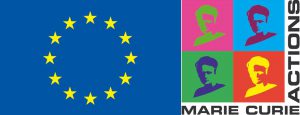(GLIORESOLVE) Training the next-generation of European GLIOblastoma (translational) researchers, to RESOLVE precision targeting of the brain tumour microenvironment

Project summary
Isocitrate dehydrogenase wildtype (IDHwt) glioblastoma (GBM) is the most frequent, aggressive and lethal brain tumour. It has a universally fatal prognosis with 85% of patients dying within two years. Effective precision medicine therapies are thus urgently required. This can only be achieved by focused multi-sectoral collaborations in innovative research disciplines. Overall, GLIORESOLVE will exploit the intractability of GBM to address European applied biomedical research training needs and will train 10 innovative, entrepreneurial doctoral researchers (DRs). The research objectives of GLIORESOLVE are i) to extend immunotherapy options to IDHwt GBM patients and identify novel tumour microenvironment (TME) subtype-specific therapeutic targets, (ii) develop and optimise state of the art pre-clinical models that recapitulate GBM TME-subtypes and (iii) test novel rationally selected (available) drugs / drug combinations for precision treatment of IDHwt GBM based on TME subtype assignment. Cumulatively, the programme seeks to generate sufficient data to support a post-project Phase 2 clinical trial. The consortium brings together leading European academics, clinicians, private sector and not-for-profit partners, and incorporates disruptive research methods including multiomics, ex-vivo ‘tumour-on-a-chip’ assay development, computational modelling and systems biology. Overall GLIORESOLVE provides a comprehensive translational research strategy that goes significantly beyond the current state-of-the-art in neuro-oncology, to establish a new TME-targeting precision medicine platform for this incurable disease. The GLIORESOLVE network addresses current needs in academia and the private sector to train doctoral researchers in an environment that spans multiple disciplines. Thus, GLIORESOLVE DRs will be able to navigate confidently between clinical, academic and private sector environments to progress applied research findings towards improved patient outcomes.
Impact
A major expected scientific impact of GLIORESOLVE will be to extend immunotherapy treatment options to brain tumour patients based on TMElow,med,high subtypes . Moreover, interrogation of the underlying biological and genetic differences (including at the single-cell level) of novel subtypes will identify new actionable targets and provide insights into subtype-specific resistance mechanisms. Ultimately, the GLIORESOLVE strategy could benefit patients, clinicians and healthcare systems. Data emerging from GLIORESOLVE will ultimately benefit patients via reduced hospital time and through the avoidance of toxicities associated with ineffective therapies. The burden on care-givers and patient social networks will be reduced.
More detailed information
Principal Investigator:
Role Erasmus MC:
Beneficiary
Department:
Neurosurgery
Project website:
Not available
Funding Agency:
Horizon Europe MSCA Doctoral Networks



